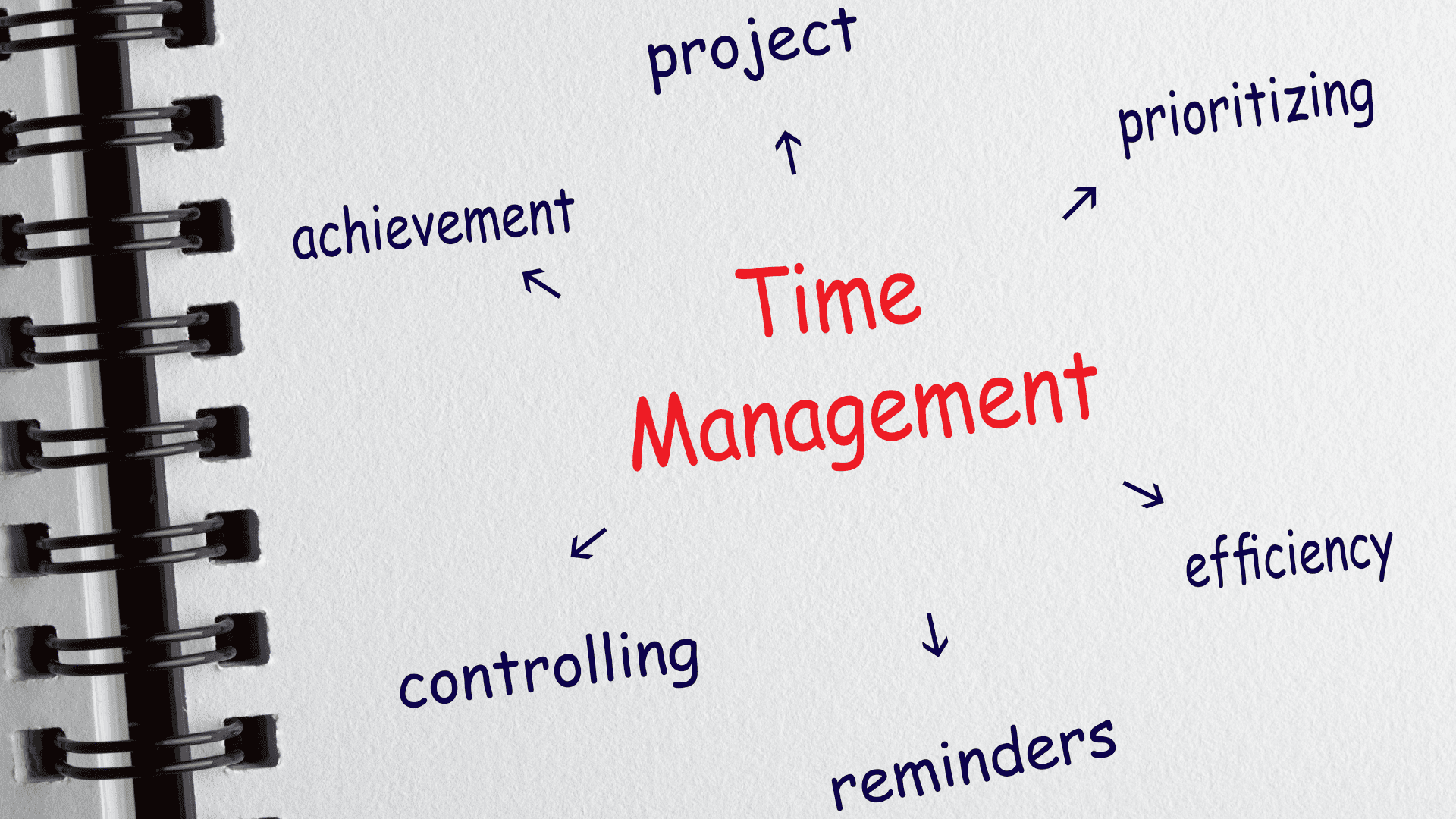Archive
Monthly Archives: March 2024
Monthly Archives: March 2024

In today’s fast-paced work environment, being a busy professional is often synonymous with being constantly overwhelmed. With competing priorities, tight deadlines, and an ever-growing to-do list, it can feel like there’s never enough time in the day to get everything done. However, mastering the art of time management can help you take control of your schedule, boost productivity, and achieve your goals with greater efficiency.
Here are some practical time management techniques to help busy professionals maximise productivity:
Remember, effective time management is not about working harder but working smarter. By implementing these time management hacks into your daily routine, you can optimise your productivity, reduce stress, and achieve better work-life balance as a busy professional. So, take control of your time, prioritise your tasks, and watch your productivity soar.
Want to join our FREE masterclass on time management where we go deeper into the above points with tools for each hack? Join our community HERE.

In the fast-paced world we live in, success often seems like a distant goal, achievable only by those who possess extraordinary talent or luck. However, one often overlooked factor that can significantly contribute to success is the implementation of a well-crafted daily routine. A routine provides structure, discipline, and efficiency to our lives, enabling us to make the most of our time and resources. In this article, we’ll delve into the benefits of a routine and offer practical tips for creating one that fits your unique needs.
A well-designed routine helps eliminate decision fatigue by automating mundane tasks and creating a clear roadmap for the day. This allows you to focus your energy on high-priority tasks, thereby boosting productivity and efficiency.
By allocating specific time slots for different activities, a routine helps you make better use of your time. It prevents procrastination and ensures that you allocate sufficient time to important tasks without neglecting other areas of your life.
Knowing what to expect each day can significantly reduce stress and anxiety. A routine provides a sense of stability and control, making it easier to navigate through the challenges and uncertainties of daily life.
Contrary to popular belief, a routine doesn’t necessarily equate to a monotonous existence. Instead, it allows you to strike a balance between work, personal life, and self-care activities. By incorporating time for relaxation and leisure, you can prevent burnout and maintain overall well-being.
Begin by clarifying your long-term goals and identifying the activities that align with them. Prioritise tasks based on their importance and urgency, ensuring that your routine reflects your overarching objectives.
Don’t overwhelm yourself by trying to implement drastic changes overnight. Instead, start with small, manageable adjustments to your daily schedule. Gradually introduce new habits and routines, allowing yourself time to adapt and establish consistency.
The way you start your day sets the tone for the rest of it. Create a morning ritual that energizes and prepares you for the day ahead. This could include activities such as exercise, meditation, journaling, or a healthy breakfast.
Divide your day into blocks of time dedicated to specific tasks or categories of activities. Allocate sufficient time for work, personal projects, relaxation, and social interactions. Use tools like calendars or productivity apps to schedule and track your activities effectively.
While routines provide structure, it’s essential to remain flexible and adaptable. Life is unpredictable, and unexpected events may disrupt your plans. Embrace these changes gracefully and adjust your routine as needed, without losing sight of your long-term goals.
Regularly evaluate the effectiveness of your routine and make adjustments as necessary. Reflect on your progress, identify areas for improvement, and incorporate feedback from your experiences. A routine is a dynamic process that evolves over time to suit your changing needs and circumstances.
In conclusion, building a daily routine is a powerful tool for achieving success in both professional and personal endeavours. By harnessing the benefits of structure, discipline, and efficiency, you can optimise your time and maximise your potential. Remember to tailor your routine to suit your unique goals, preferences, and lifestyle, and don’t hesitate to modify it as you grow and evolve. With dedication and perseverance, a well-crafted routine can pave the way for a fulfilling and successful life.

In today’s fast-paced and ever-evolving world, success isn’t just about what you know; it’s about how you approach learning and development. One of the most powerful tools for achieving success in both personal and professional realms is the concept of a growth mindset.
So, what exactly is a growth mindset? Coined by psychologist Carol Dweck, a growth mindset is the belief that our abilities and intelligence can be developed through dedication and hard work. In contrast, a fixed mindset is the belief that our talents and capabilities are innate and unchangeable.
Adopting a growth mindset means embracing challenges, persisting in the face of setbacks, seeing effort as a path to mastery, and learning from criticism. It’s about viewing failures not as signs of incompetence but as opportunities for growth and improvement.
Here are a few key reasons why cultivating a growth mindset is crucial for personal and professional success:
So, how can you cultivate a growth mindset?
By adopting a growth mindset, you can unlock your full potential, embrace new opportunities, and achieve success in all areas of your life. So, challenge yourself, embrace failure, and never stop learning and growing. The possibilities are endless when you cultivate a mindset focused on growth and development.
Want to associate with others having the growth mindset and in their transformation journey? Join our FREE community of trend setters HERE.

In the pursuit of our goals, whether personal or professional, we often find ourselves fixated on the grand achievements—the big promotions, the major milestones, the monumental successes. While these are undoubtedly worth celebrating, it’s equally important not to overlook the significance of small wins along the way. These smaller victories may seem inconsequential at first glance, but they play a crucial role in keeping us motivated and propelling us forward on our journey.
Acknowledging and celebrating small wins is more than just a feel-good gesture; it’s a powerful tool for maintaining momentum and sustaining motivation over the long haul. Here’s why embracing the concept of celebrating small wins can make a big difference in your success journey:
So, how can we effectively celebrate small wins in our personal and professional lives?
In conclusion, celebrating small wins is not about trivializing our achievements but rather about recognizing the journey and the progress we’ve made along the way. By embracing the power of small victories, we can stay motivated, inspired, and focused on reaching our ultimate goals. So, let’s celebrate every step of the journey, no matter how small, and keep moving forward with confidence and determination.
Join a community of like minded people where everyone cheers for your every little success.

In a world that often feels fast-paced and chaotic, it’s easy to get lost in the hustle and bustle of everyday life. We find ourselves chasing after goals and dreams without truly understanding why we’re pursuing them in the first place. However, finding your “why” — your purpose — is not just a philosophical pursuit; it’s a powerful tool that can fuel motivation, drive success, and bring a sense of fulfilment to our life and work.
Identifying your purpose provides you with a guiding light, a North Star to navigate through life’s challenges and opportunities. When you know why you do what you do, every action becomes more intentional and meaningful. Purpose acts as a source of motivation during tough times, a beacon of hope when you face setbacks, and a catalyst for resilience in the face of adversity.
Moreover, purpose gives your life a sense of direction and clarity. It helps you prioritise your goals and make decisions that align with your values and aspirations. When you’re clear about your purpose, you’re less likely to be swayed by external pressures or societal expectations. Instead, you become the architect of your own destiny, shaping your life according to what truly matters to you.
Think about the activities or subjects that make you come alive. What are you naturally drawn to? What makes you lose track of time? Your passions often hold clues to your purpose, indicating what you deeply care about and what brings you joy.
Your values are the principles that guide your behaviour and decision-making. Reflect on what matters most to you in life — whether it’s honesty, compassion, creativity, or justice. Your purpose is often connected to living in alignment with your core values.
Take inventory of your strengths, talents, and skills. What are you good at? What do others admire about you? Your purpose may involve using your unique abilities to make a positive impact in the world. Sometime you may struggle to find your strength as it is a part of you since your birth. There is a famous book called Strength Finder from Gallup which you could use to easily find your strength.
Your past experiences — both positive and negative — can offer valuable insights into your purpose. Reflect on the challenges you’ve overcome, the lessons you’ve learned, and the moments that have shaped who you are today. Often, your purpose emerges from turning your pain into purpose or using your struggles to help others.
Pay attention to your intuition and gut feelings. What is your inner voice telling you? Sometimes, your purpose reveals itself through moments of inspiration or inner knowing.
Don’t be afraid to experiment and try new things. Your purpose may evolve over time, so stay open to exploring different paths and possibilities. Be willing to step outside your comfort zone and embrace the journey of self-discovery.
In a world filled with distractions and noise, finding your purpose is like finding the missing piece of a puzzle — it brings everything into focus and gives your life greater meaning and significance. By identifying your why, you unlock a reservoir of motivation, resilience, and fulfilment that propels you toward success in both your personal and professional endeavours.
So, take the time to reflect, explore, and listen to your inner voice. Your purpose is waiting to be discovered, ready to ignite your passion and propel you toward a life of purposeful action and fulfilment. Embrace the journey, and remember that the power of purpose lies within you.
Are you struggling to find your purpose in life? Why not join our FREE masterclass on Finding your purpose by joining our community HERE.

Procrastination – the perennial enemy of productivity and progress. We’ve all been there: putting off tasks until the last minute, allowing distractions to hijack our focus, and watching deadlines loom ominously closer. Yet, overcoming procrastination is not an insurmountable challenge. With the right mindset and strategies, you can conquer procrastination and achieve your goals effectively. Here are some actionable tips to help you on your journey:
Remember, overcoming procrastination is a gradual process that requires consistency and perseverance. By implementing these actionable tips and strategies, you can cultivate habits that empower you to tackle tasks head-on and achieve your goals with confidence. Embrace the journey, stay resilient, and watch as your productivity soars to new heights.
Do you want to take our FREE master class on “Overcoming Procrastination” and have an accountable partner for yourself? Join our FREE community HERE.